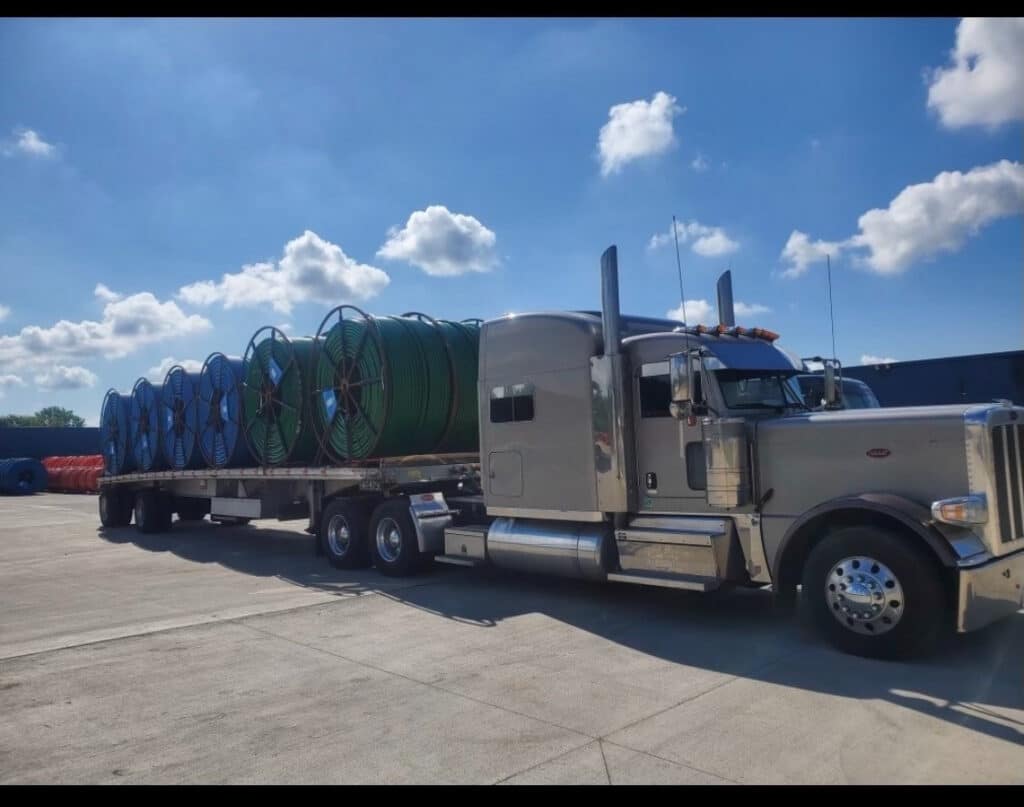Does your company ship out a lot of product but does not have the supply of trucks to handle your customers demand? What if your company ships out little product and when you do, you do not know who to call or how much the transport will cost?
Over the course of doing business we have heard a lot of questions from shippers such as, “How do we pay for an outside contractor to transport for us since we pay based on a bi- weekly, monthly, etc. schedule?” “How do we know what we are being charged is a fair rate? If we pay a transportation company directly how can we trust the services they provide and what do their rates look like in comparison to other transportation companies?” “Will be tied down to a contract or can we shop around for other transporters based on our needs?” These are just some of the questions that our article is going to address. We are going to explain what options are out there and list some of the pros and cons of going with each one. So let’s take a dive in the logistics space and see what is out there!
Option 1: Direct Carrier
Pros: Carriers generally have a good idea of what rate they would need to cover their general cost of operations as well as healthy profit margin needed to maintain the flow of the business. Carriers are not in the business of breaking even. Larger carriers have been in business for some time and can usually operate at lower costs which may benefit the shipper. However, with larger carriers your quality of service and transport may be impacted. Drivers working for larger carriers typically lack motivation since they are usually paid on a per mile basis. Smaller carriers have higher operation costs so you may pay a premium to use them but they tend to offer better quality of service. They tend to have higher motivation because they need to pay off the debt they used to get started and they are hungrier to expand their fleet.
Cons: There can be safety issues and concerns when it comes to working with carriers directly. Some carriers may not meet general safety requirements or may even lack the skill set needed to transport your freight. Some carriers may be involved in double brokering operations where they will agree to transport your load but will send another carrier to actually transport it. Then when it comes down to payment the shipper does not know who to actually pay and then you will have all sorts of legal issues. This will cost time and money. Also, some shippers may lack available carriers because of payment. Carriers prefer to be paid right away but shippers may not be able to pay them until at least 30 days.
Option #2: Using a 3PL provider/Freight Broker
Pros: Freight Broker has general insight of the freight market and what lanes typically go for based on supply and demand of trucks. They keep track of the price of fuel fluctuations and build that into their price when determining the rate. For example, if there are a greater supply of trucks available in the area where the product is getting picked up and the product is being transported to another area where the supply of freight available is greater than the supply of trucks than the cost to move your freight will be lower. Freight brokers also offer carrier screening so when they work with a 3rd party to transport your freight they have certain safety requirements or criteria that the carrier would have to meet in order to do business. Freight brokers solve the payment issues between shippers and carriers as they are the responsible party for paying the carriers when the freight has been delivered safely. They can pay the carriers usually within 24 hours thanks to working with different factoring companies that carriers use.
Cons: Freight Brokers do not actually transport your freight. Shipper has to rely on the broker to find a reliable transporter to cover loads. Many brokers do not take the cost of carrier operations into consideration such as deadhead miles, truck order not used, detention pay, and layover fees. This causes animosity between brokers and carriers. When bidding on freight, brokers will bid a rate just to secure the load so they can get paid but when it comes to covering your load they fail because their bid price is lower than what the carrier is willing to transport the load for. So they prove to be unreliable compared to working with a carrier directly. Brokers charge a premium typically 30% more than what a carrier would charge to move your load. Shippers are usually tied down to a contract when working with broker.
3rd Option: Asset Based Carrier with Freight Brokerage Operations
Pros: These transportation companies actually have the physical trucks and will move your freight. You as the shipper will have a peace of mind knowing the transporter you contract with will be the actual transporter for your load. You will not have to worry about missed or delayed shipments. If there are disruptions in the supply chain where the demand exceeds the supply of trucks available, this type of company can have their freight brokerage team secure another carrier/carriers in order to keep operations going smoothly and in a timely manner. This type of operating entity knows what other carriers will need to move your freight and usually will broker it out at a lesser cost than a standalone freight brokerage would charge.
Cons: Sometimes asset based carriers with a freight brokerage can be tied to double brokering operations.
Final Thoughts: This is just a general overview of different options for your company when looking into transportation. You can decide which of these options will be the most effective for your operations. The purpose of this blog article is to educate you so you can learn more about the operations of First Priority Transport and how we can be your exclusive transportation provider. Tune in for our next blog!








